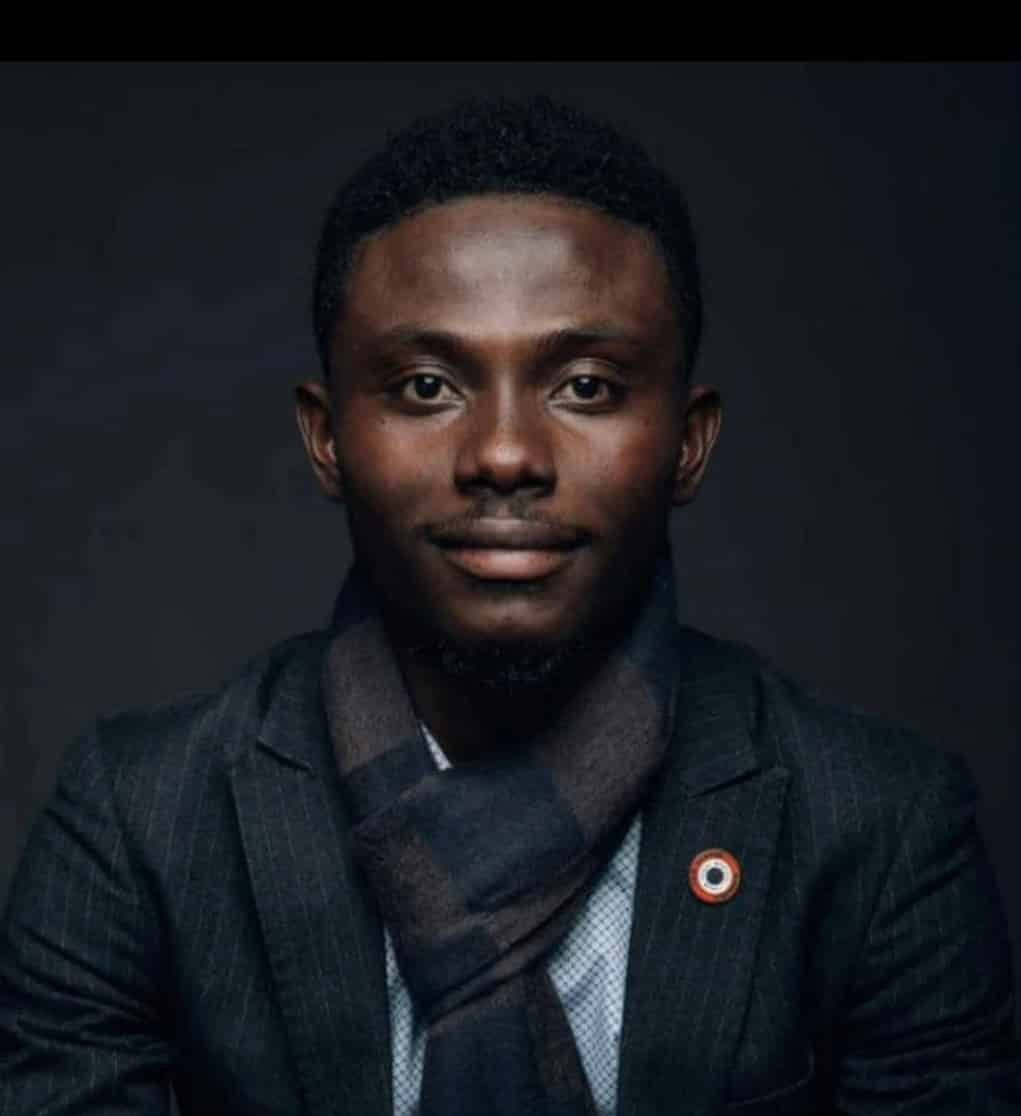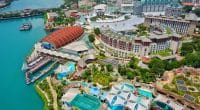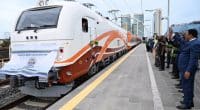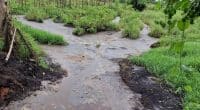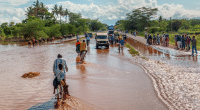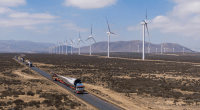He is one of those who believe that Africa can achieve sustainable development through innovative and inclusive finance. In this interview, the Ivorian Wilfried Adingra, Managing Director of the Diaspo4Africa platform, talks about the mechanisms for financing ecological projects, in a context marked by a low rate of bank penetration and a lack of awareness of climate emergency on the continent.
He is one of those who believe that Africa can achieve sustainable development through innovative and inclusive finance. In this interview, the Ivorian Wilfried Adingra, Managing Director of the Diaspo4Africa platform, talks about the mechanisms for financing ecological projects, in a context marked by a low rate of bank penetration and a lack of awareness of climate emergency on the continent.
Benoit-Ivan Wansi: At just 34, you have quickly made a name for yourself in the world of sustainable finance. Can you look back over the highlights of your career as an entrepreneur, and in particular the goal of your international participatory finance platform?
Wilfried Adingra: I initially set up a company called Lumen Financial Africa with the aim of developing alternative solutions for financing start-ups and small and medium-sized enterprises (SMEs). Later, during my research, I came across data from the World Bank showing that remittances from diasporas in Africa amount to 53 billion dollars a year. This is much higher than investment and official development assistance (ODA), which generally amount to 27 billion dollars a year. So we end up with so much money that is unfortunately invested in non-productive sectors, since these resources are sometimes intended for direct consumption, to look after a sick relative, etc. With this in mind, I launched the Diaspo4Africa international platform to help diasporas choose their investment projects, including initiatives based on the 17 Sustainable Development Goals (SDGs).
What sectors of the economy are you targeting and do you have any criteria that guide your choice of financing one project rather than another?
In our first call for projects in 2018-2019, we didn’t target any sectors. But we were pleasantly surprised that around 70% of the projects submitted were essentially focused on agriculture. We also support activities that promote innovation. Project promoters have to present us with a business plan and a financial track record. Our team is spread across several countries (Benin, Togo, Ghana), with expertise in each sector so that we can analyse the socio-cultural and political context to ensure the success of each project. All innovative financing must be absolutely linked to the SDGs.
At what precise level do you take the environment into account in your decision-making process?
We integrate the “environmental impact” component into every project idea from the outset. To be clear, we don’t operate in conventional agriculture, for example, because we know that there is a deficit in terms of soil availability. In the case of Ivory Coast, most of the people who started growing coffee, cocoa or rubber did so by destroying the soil. So, we have opted for soilless cultivation through greenhouse farming in conditions of temperature, humidity and light (for the plants) that are adapted and controlled. In practical terms, we use soilless cultivation, particularly in the savannah, in an environment where there are not enough trees.
What about eco-construction and mobility in urban environments?
We are also involved in civil engineering, with 10 villas already built as part of the “Janek” initiative in Ivory Coast’s economic capital. For the future, we’re going to tie in with advances in eco-construction by giving priority to financing property projects that promote ecological materials and craftsmanship. Madrid (Spain) is already doing this so well with mud bricks rather than cement, the composition of which is quite polluting.
As far as mobility and transport are concerned, we are trying to move towards decarbonisation principles. We have already thought about a structure specialising in replacing the car fleet, particularly second-hand vehicles, with hybrid or fully electric vehicles. There are nearly 80,000 used cars in Abidjan alone. This situation is beginning to improve, following a decision by the Ivorian authorities to set a five-year limit on the operating life of certain types of imported vehicle. It’s crucial to gradually decarbonise road traffic.
Why is decarbonisation part of your financing strategy?
It’s important to point out that second-hand vehicles have older engines and consume a lot of fuel (petrol, diesel). This obviously increases CO2 emissions.
However, by investing more in electric mobility and the charging stations that go with it, we have a better chance of limiting air pollution in our African territories. We are taking all these parameters into account when planning our investment choices.
Read also- AFRICA: Mayors meet in Abidjan to call for more climate
Does it make economic sense today to invest in sustainable development?
Absolutely. The ecological transition requires us to adopt new modes of consumption and, by extension, a new market. It is also driving start-ups to develop and offer new solutions to adapt to constant change. Europe, for example, is in the process of significantly reducing its production of internal combustion vehicles. This is good news for Africa, since most of the vehicles imported will be electric. It is well known that the greenhouse gas (GHG) emissions generated by Africa are only around 5% of those in the rest of the world. More than just a credo, this must be a business opportunity to invest in green solutions that can be marketed internationally. And our companies must be ready for this challenge.
Why talk about financial inclusion? Is it to facilitate balanced development between urban and rural areas?
There is a form of rural exodus because of the opportunities offered by cities. In response to this, our job is to encourage investments in rural areas that initially meet the food security MDG2. This is what we have done in the northern town of Nikki in Benin, where we have successfully launched two integrated farms. These are community projects in response to the drought that usually impacts villagers’ agricultural productivity. One of the start-ups that we are funding on the ground uses shea butter to make cosmetics (soaps, ointments, etc.). We are also working with them on eco-responsible production to avoid the use of highly polluting industrial techniques.
From 10 to 14 October 2023, you took part in the “Voice of Africa” event organised by Mohammed VI Polytechnic University (UM6P) to coincide with the Annual Meetings of the World Bank and the International Monetary Fund (IMF). What struck you about the African vision of ecological transition?
Through our host, Mohammed VI Polytechnic University (UM6P), Morocco is already ahead of the game in terms of tomorrow’s technological solutions. This should attract the attention of the countries of sub-Saharan Africa, which in turn need to create a peaceful and competitive framework for training our young people in these new professions. The challenge is to meet the challenges of the ecological transition. In the education system, children need to be equipped to deal with climate issues, while in industry, we need to boost CSR (corporate social responsibility) initiatives.
Read also-
You have launched a number of initiatives to formalise your involvement in financing sustainable development on the African continent. Can you tell us more about this?
The finance sector is rather complex and highly regulated, for a number of reasons aimed at preventing money laundering. We don’t want to be outside this regulatory framework. However, there is not yet any real legislation dedicated to crowdfunding (participative financing as an alternative to bank loans, editor’s note), particularly within the West African Economic and Monetary Union (WAEMU). For the time being, we’re looking to Luxembourg’s Commission de Surveillance du Secteur Financier (CCSSF), which will be able to obtain conventional approval for our financing platform in the coming months.
Interview by Benoit-Ivan Wansi, back from Morocco

